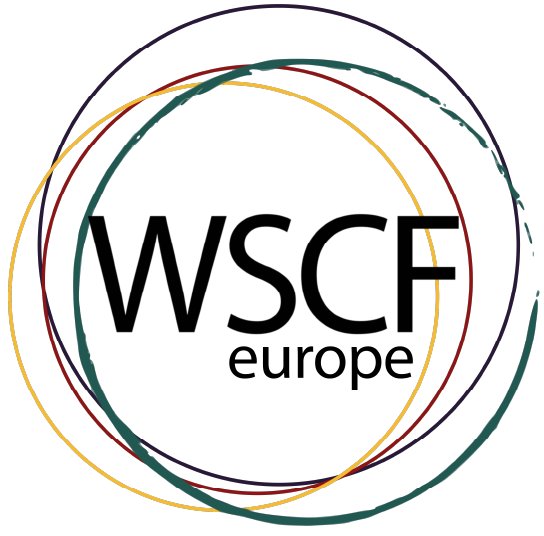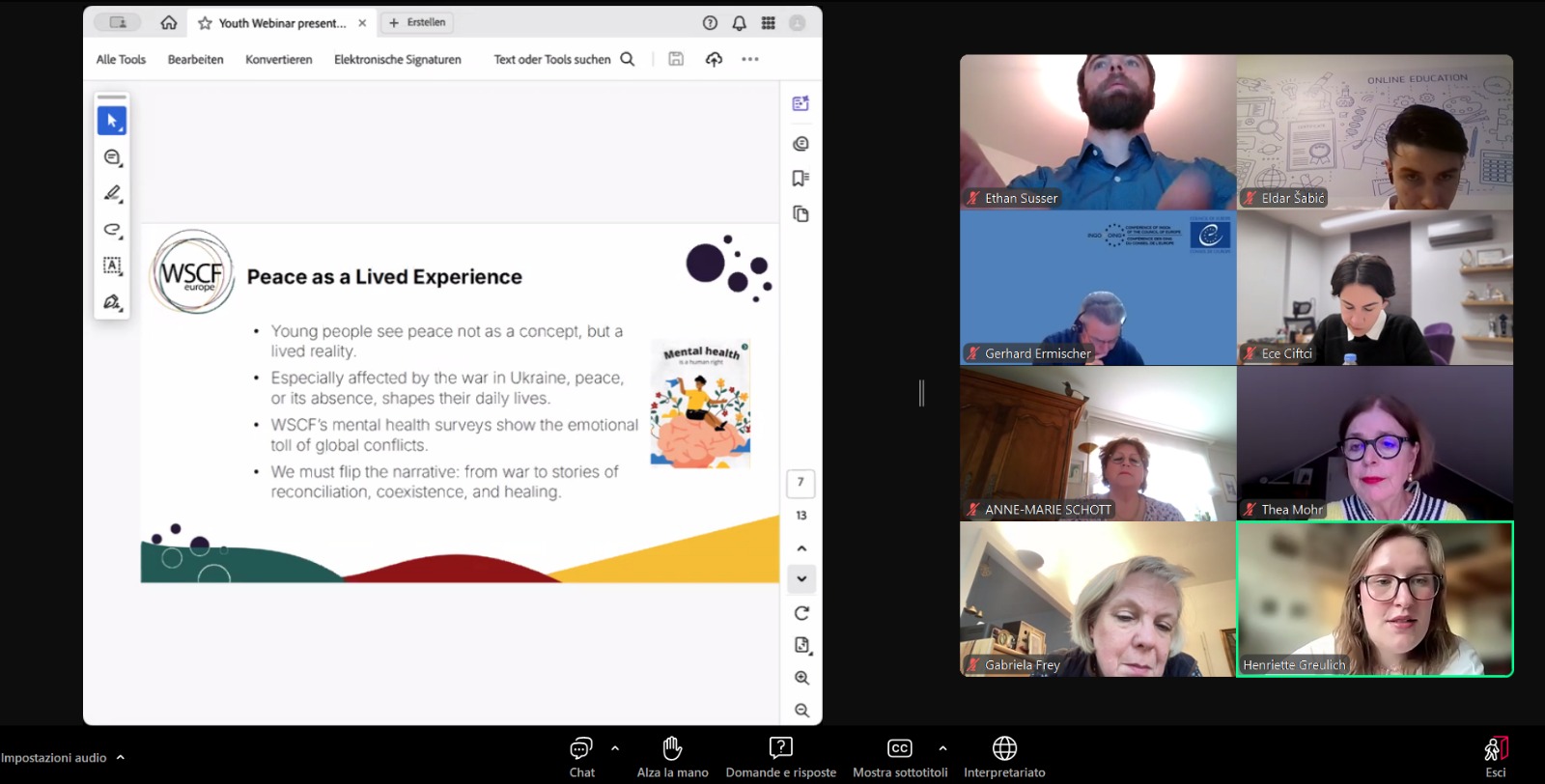On April 15, 2025, the Committee for Inter-religious and Inter-convictional Dialogue of the Conference of INGOs hosted a timely and deeply engaging webinar titled “Youth for Peace Initiatives in Inter-religious & Inter-convictional Context”. At a moment when many in Europe are grappling with uncertainty, rising hate speech, and social fragmentation, including within religious contexts, the event brought together young changemakers who are actively working to build bridges and strengthen interfaith cooperation.
The speakers, coming from different faith backgrounds and corners of Europe, shared inspiring stories of grassroots action and community engagement. From cultural dialogue in Sarajevo and Vienna to interreligious women’s networks, each initiative demonstrated how youth are not only willing but ready to take leadership in reimagining peace from the ground up.
WSCF-Europe’s Contribution: Living Faith Together for Justice
Representing WSCF-Europe, Chairperson Henriette Greulich concluded the webinar with a compelling message on the urgency of meaningful youth participation in peacebuilding, especially in interreligious contexts.
Rooted in WSCF’s vision of “living faith together for justice”, her contribution highlighted the spiritual, political, and deeply personal dimensions of youth-led peace work. Drawing on international research and the United Nations’ Youth, Peace and Security agenda, she underlined that young people are not passive recipients of peace processes but essential co-creators of peaceful societies. Yet, they often face systemic exclusion, from symbolic participation to structural underfunding.
Henriette emphasized that interfaith dialogue plays a critical role in fostering social cohesion, especially when youth are not just included, but empowered. She shared how WSCF-Europe actively cultivates these spaces through initiatives like the 2025 annual project “Frame the Future”, which explores peace not as the absence of war, but as an active, everyday process. Through study visits in Poland, Northern Ireland, and Finland, and culminating in a youth-led peacebuilding conference in Sarajevo, this initiative shines a light on narratives of reconciliation, coexistence, and collective healing.
WSCF-Europe also champions safe and inclusive spaces for critical dialogue. Through non-formal education, interfaith cooperation, and a focus on mental health and structural justice, the organization supports youth not just as participants, but as co-creators of community transformation. As Henriette put it: “A safer space is not a neutral space. It is an intentional one… These structures may sound technical, but they are deeply spiritual acts of care.”
In closing, she offered a clear call to action: if we are serious about sustainable peace, we must embed youth participation into the heart of our structures, not as an exception, but as the norm. This means resourcing youth initiatives, creating access to decision-making spaces, and recognizing the value of faith-based perspectives grounded in justice and solidarity.
“If we truly believe in living faith together for justice,” Henriette concluded, “then the time to empower youth is not tomorrow. It is today.”
As a federation of young Christian voices from across Europe, WSCF-Europe continues to walk this path of living faith as a force for justice and peace.

